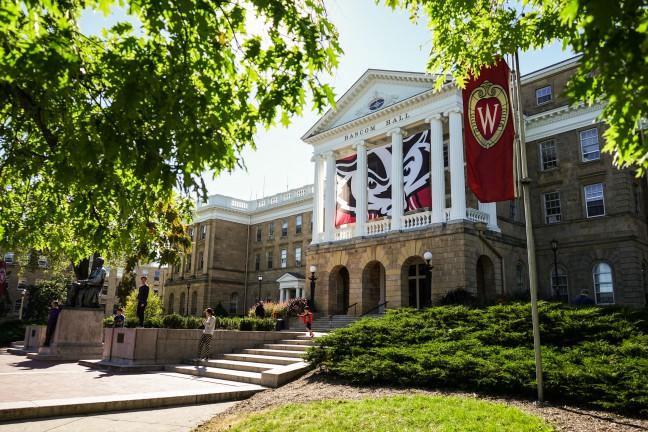The University of Wisconsin recently announced the launch of the First-Generation Badgers program to help support first-generation students. According to a Sept. 27 news release from UW, the First-Generation Badgers program will bring together existing programs at UW, faculty and students to provide a more cohesive group to enhance these students’ experiences.
A first-generation college student is a student whose parents did not complete a four-year college degree, according to the Morgridge Center for Public Service. In 2020, first-generation students accounted for 19.4% of the university’s student body.
UW Dean of Students Christina Olstad was a first-generation student herself. She said her college experience gave her insight into the unique challenges first-generation students face.
“I felt like navigating the university environment was a little bit more challenging for me,” Olstad said. “I didn’t have individuals within my family that I could ask specific questions about and I really had to rely on my peers.”
According to Olstad, the First-Generation Badgers program will bridge the gap between existing first-generation support groups and help inform incoming and current students of available services. These programs include the Division of Diversity, Equity and Educational Attainment and the Center for Academic Excellence in the College of Letters and Sciences.
The program also plans to incorporate a mentorship program where students would partner with first-generation faculty, staff or administrative mentors. Olstad said the program will be open to feedback from students and new concepts or ideas through listening and feedback engagement sessions.
Generally, households with a first-generation college graduate generally make less than those with a college-educated parent. In 2019, first-generation college graduate households had a median annual income of $99,600, compared to $135,800 for households with a college-educated parent, according to Pew Research Center.
Additionally, students with at least one college-educated parent were more likely to complete their education than students with no college-educated parents. In the same year, 70% of adults between the ages of 22 to 59 who were not first-generation students completed their degree compared to 26% of their peers who were first-generation students, according to Pew Research Center.
Part of the reason for this is that parents who attended college may have more knowledge of the college application and admission process than parents who didn’t attend college. Between 1995 and 1996, students whose parents had completed at least a bachelor’s degree were more likely to have taken a rigorous high school curriculum, taken the ACT and taken an Advanced Placement test, according to the National Center for Education Statistics.
Aleena Banuelos, a first-generation student studying elementary education, said she hopes the program will provide a better way of keeping parents informed.
“Because my parents didn’t attend college, I feel like I’m the bridge between bringing my schoolwork to my parents and keeping them informed about what’s been going on,” Banuelos said.
Banuelos is a part of the Posse Program, which provides full tuition scholarships for individuals who are otherwise overlooked in the college admission process. Banuelos said the Posse Program provides the guidance students need that they may not receive from their parents. She hopes the First-Generation Badgers program will take a similar approach.
“I feel like in the first-generation program, having these mentors would be a great way to keep first-generation students on track because their parents are the ones that didn’t go to college,” Banuelos said. “They may not have that mentorship from their parents to guide them through what to expect. Whereas having mentors on campus, you can go to them, ask them any questions, and if they don’t know the answers, they’re connected with somebody who can get them for us.”
In addition to these support structures, the First-Generation Badgers program is also organizing events to further engage and support first-gen students. UW will celebrate National First-Generation College Celebration Day Nov. 8 in addition to hosting events in January and May, according to the Sept. 27 news release.
Olstad said she hopes this new program will help promote a closer community of first-generation Badgers.
“We see you, we hear you, we are so glad you’re here,” Olstad said. “And for those of us who have been exactly where you are, we are committed to making this a more inclusive community, we are invested in your success and we look forward to meeting you. If any student is navigating a challenge or barrier as they are navigating higher [education] … [The Dean of Students Office’s] role is to really make this large university feel a bit smaller, and connect students to appropriate resources and support.”


